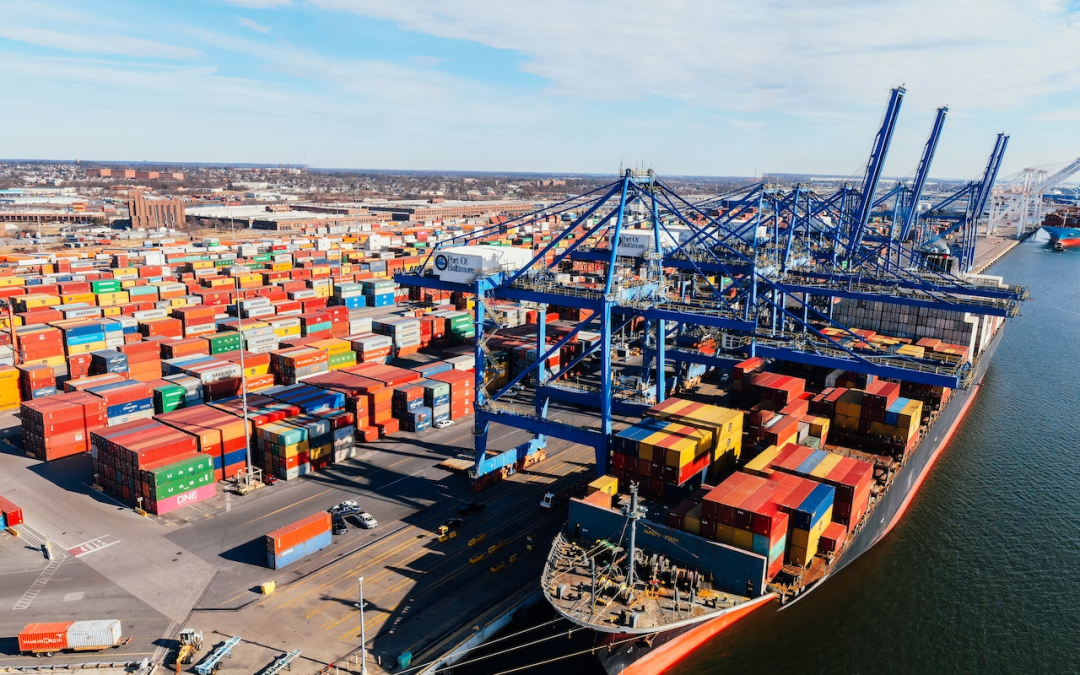EXW, FOB, DPU, DDP…
Recognise these codes?
They’re incoterms, which is short for International Commercial Terms, and are usually found on the Bill of Lading. (If you’re not sure what a Bill of Lading is, read our recent blog to find out).
But what do incoterms mean, and why should you use them?
Let’s find out.
The Role Of Incoterms
Incoterms detail the tasks, risks and costs for the buyers and sellers of a shipping transaction, and are internationally recognised. By pre-defining the responsibilities of both importer and exporter in this way, incoterms save confusion and disagreement later down the line.
The trade codes clearly set out who is responsible for the wide range of jobs involved in global trade, including:
- Sourcing insurance
- Sorting out documentation
- Managing the shipment
- Paying duties and tax
- Managing the goods through Customs clearance
It’s important to note that using incoterms is not a legal obligation, and some companies choose not to.
What Don’t Incoterms Do?
Whether you’re labelling up packages, filing a purchase order or clearing cargo through customs, incoterms are valuable throughout the trade process. They are designed to reduce uncertainty across the varying rules from different countries in international shipping.
What they DON’T do is replace a contract of sale.
Therefore, incoterms do not:
- Tell you whether there is a contract of sale
- Detail consequences should a breach of contract occur
- Note the mode, time or place of delivery
- Tell you what currency the payment will be made using
- Specify the type of goods being transported
- Bear any information regarding force majeure
- Deal with who owns the goods
The 11 Incoterm Rules And What They Mean
Each incoterm is written as a three-letter code.
The first seven are grouped as they can apply to any mode of transport:
- EXW (Ex Works). All responsibility for dealing with the costs and risks of transporting the goods lies with the buyer.
- FCA (Free Carrier). The seller arranges delivery of the goods and is responsible for export procedures including customs clearance, and must provide the buyer with the correct export documentation. Upon unloading the goods at the named location the buyer becomes liable for onward transportation and is fully responsible for the goods.
- CPT (Carriage Paid To). Under CPT terms the seller is in charge of transportation costs and management. The buyer becomes liable for the goods when they change hands from the seller to the first carrier.
- CIP (Carriage and Insurance Paid To). Under CIP terms the seller pays the freight and insurance charges to get the goods to a mutually agreed destination. The risk moves from seller to buyer when the goods have been loaded.
- DPU (Delivered at Place Unloaded). DPU determines that the seller is responsible for transporting the goods to a specified place. At the point the goods are unloaded, the buyer assumes all responsibilities including all import procedures and costs.
- DAP (Delivered at Place). Similar terms to DPU, however, the goods only become the responsibility of the buyer when the buyer is ready to unload them.
- DDP (Delivered Duty Paid). Under DDP terms the seller is responsible for all costs, risks and tasks involved in getting the goods from their country of origin to a predetermined location in the buyer’s country.
The next four are specific to Sea and Inland Waterway transport:
- FAS (Free Alongside Ship). Under FAS the seller is required to prepare the goods for export and place them alongside the ship at the named port, at which point the buyer bears all responsibilities and costs from then onwards.
- FOB (Free On Board). Sellers trading under FOB must physically load the goods onto the predetermined ship. Once loaded, the buyer resumes responsibility for all costs and risks.
- CFR (Cost and Freight). The seller is required to pay the costs involved in the transportation of the goods, but all risks are transferred to the buyer once the goods are loaded onto the ship.
- CIF (Cost, Insurance and Freight). CIF terms echo CFR terms, except that the seller is also in charge of paying for the insurance as well as covering the transport costs.
Understanding Incoterms Avoids Costly Mistakes
Incoterms have been designed to reduce the confusion of global trade, but they only work if used correctly. Making sure you’ve done your homework and put the correct three-letter code into your sales contract is crucial.
Too much to think about? Our easy-to-understand incoterms chart might help. But if you’re still uncertain, call Millenium today to discuss your shipping needs and make sure you don’t put yourself at unnecessary risk.

